Boondocking Tips, Tricks, And How To Find That Perfect Park Up
Some campervans never see the outside of a campsite, while others spend their whole lives boondocking, parking in wild places with spectacular views.
Of course, it’s not the vans choice where you park up. It’s all down to how you, the driver, feel about parking your motor in unfamiliar territory. Off grid living isn’t for everybody, and many people aren’t equipped for the kind of lifestyle that boondocking provides.
That could all be about to change!
If you’ve got to this point and are still wondering A) what boondocking is, and B) what on earth I am talking about, then fear not. Through the course of this article, I’m going to give you the lowdown on this style of camping, passing on my experiences from three-years of living this lifestyle.
Everything You Need To Know About Boondocking From A Bonafide Boondocker!
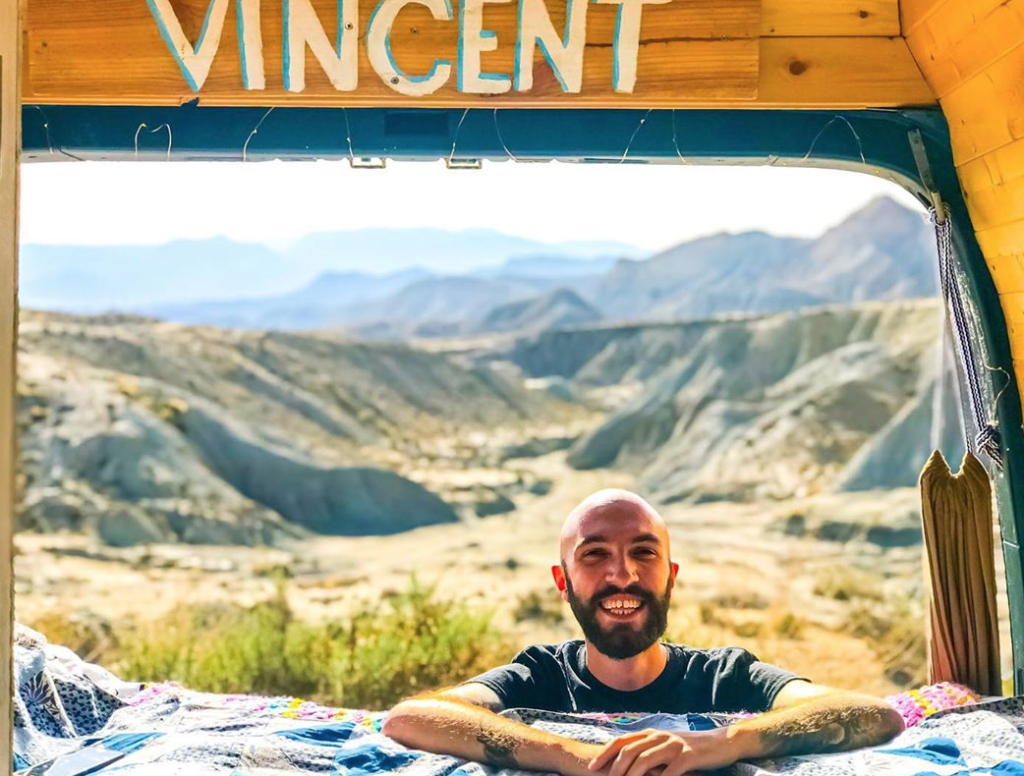
A quick note before we start. I’m not saying that camping in a campsite is for softies or that it’s not a good way to travel. If you couldn’t imagine camping anywhere else than a campsite and don’t want to change, then we’re not here to make you feel bad.
For me, boondocking is a way of seeing the world up close and personal, something I don’t feel you can do in a campsite. You also don’t get drunk people playing Wonder Wall by Oasis badly at 3am. Unless that person is you, of course.
What Is Boondocking?
Boondocking is essentially parking up in any place without facilities or a person at a gate who takes money off you and shows you to your plot. You might know it better as ‘wild camping’, but the premise is the same no matter what label you put on it.
Rather than picking a certain campsite, you can pick anywhere in your country, state, or county and park up in the heart of nature.
I’ve spent the past three years boondocking on the side of mountains, on the beach at the cusp of the ocean, and in tranquil forests with nothing but wildlife (and my girlfriend) to keep me company.
Why Should I Consider Boondocking?
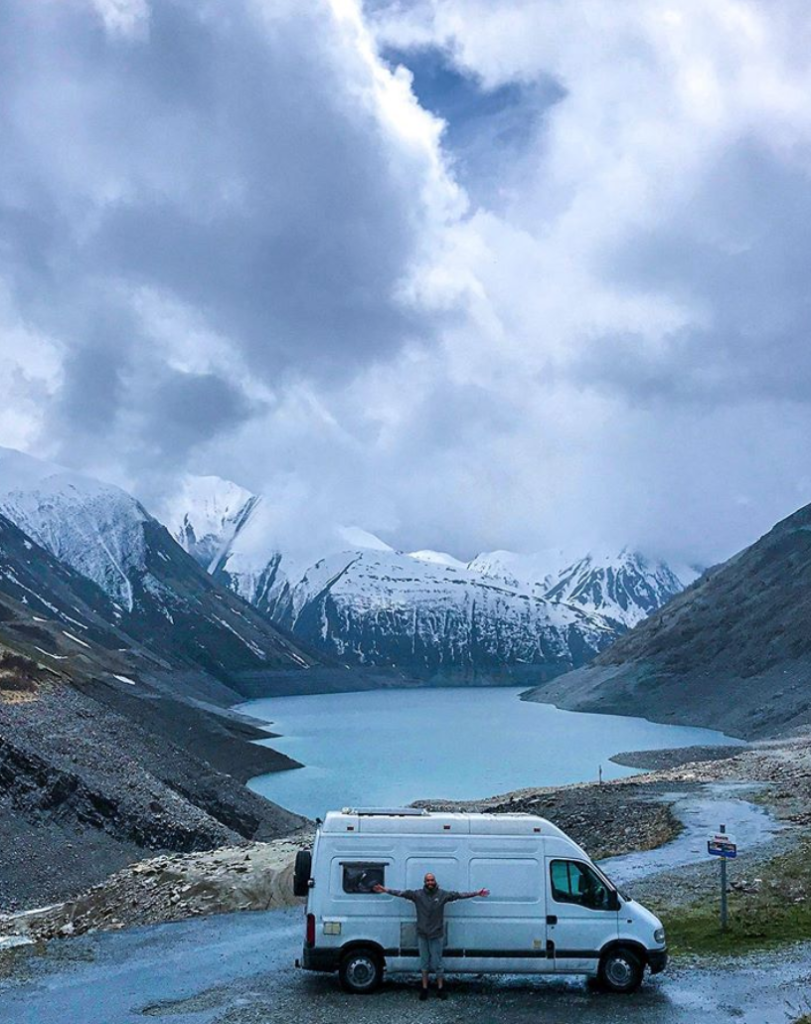
For many, Boondocking provides a means of getting out into nature and experiencing it close up. There’s nothing better than waking up to an amazing view out of your side door and you being the only one there to enjoy it.
It’s tranquil, almost meditative, and you get to explore the world from the comfort of your own tiny home.
Picking your park up on a map or an app is also an incredible way of visiting places that you might never have considered or even known about before you turned on your ignition that morning. Some of my happiest memories are from discovering small European villages and the kind people that greeted me there.
Boondocking is a much cheaper way of living the van life or travelling. For starters, you don’t have any campsite costs to pay when you arrive. The only person you need to pay is Mother Nature, and you can do that by picking up your rubbish when you leave and keeping the place as you found it.
Are There Any Rules?
That’s the main unwritten rule – leave no trace. And it’s easy to do, even if you have fires, BBQs, or spread out with your children in the great outdoors. Be mindful of your space, clean up as you go, and make sure your area is nice when you leave.
Obviously, if you’re parking up in aa forest or by the ocean and there are inhabited houses nearby, then be mindful of others. We all have to use common sense and not do anything that might risk local councils barring places due to noise complaints.
I’m not saying don’t have a good time; just use your head and take each park up as it comes. If you’re on a mountain by yourself, then feel free to blast out Motley Crüe until four in the morning.
Just make sure you don’t start an avalanche!
Where Can I Wild Camp?
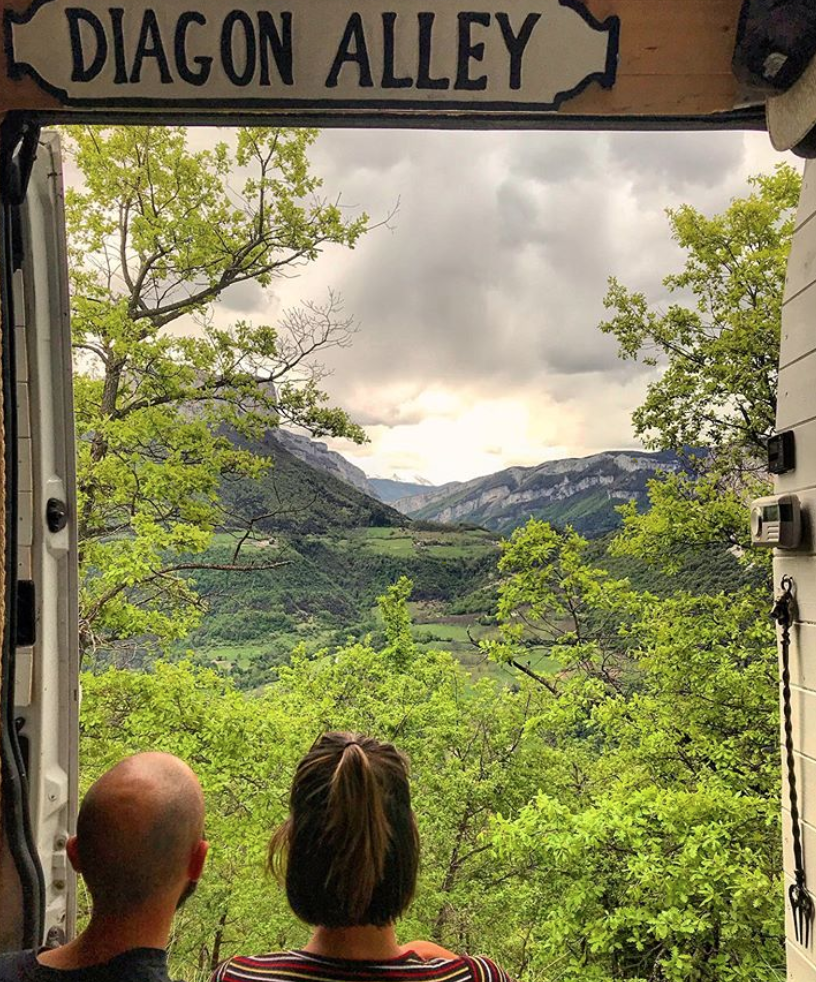
This answer will vary depending on which country you’re currently in. In America, you can legally wild camp in any National Forest or BLM land. Just think of all of the amazing places that you can visit in your van for free!
You can be in the heart of nature for as long as you want, food and water depending. That’s what I call living!
Here in Europe, different countries have different thoughts, views, and laws on wild camping.
Countries such as England and Greece technically don’t allow it, but people still get away with it nonetheless. Scotland and the Nordics allow wild camping everywhere, and countries such as France, Spain, and Italy consider RVs a strong part of their culture.
Depending on how conspicuous your camper looks, you can pretty much get away with stealth camping anywhere, be it on a street or on the beach. The second is much more preferable, but sometimes stealth camping in a car park is just what you need to break up a long journey.
Many supermarkets encourage wild camping around the world. Walmart is known for letting RVs stay for one night in its car parks.
And in Portugal, travellers can stay up to two nights in an Intermarché car park, which usually has gas, water, and toilet facilities free of charge too.
How Do I Find A Good Camp Spot?
There are lots of ways to find a good camping spot, and the best way is through apps. I know that sounds as though you’re going to be surfing sites like Tinder, swiping left or right for nice scenic camp spots, but it’s nothing like that.
One of the apps most favoured by vanlifers is Park4Night. Click the link there and keep that tab open for when you’ve finished reading this article. It’s a great read, though I guess I’m biased as I wrote it…
Park4Night is a community-driven app where people post geo-tagged locations of boondocking spots around the world. This can be places that locals like to go to in their village or places that a complete stranger has happened upon while travelling through the country.
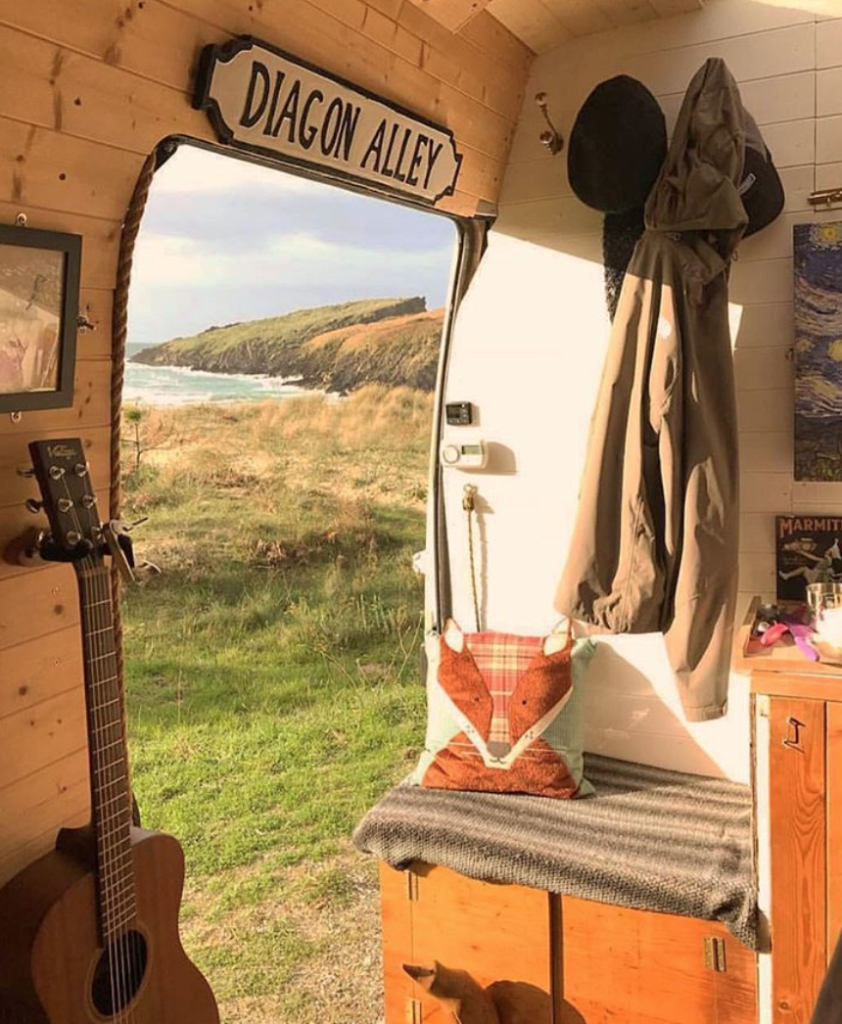
Other users can leave comments and pictures of how they found the site too. This is great if you want some other opinions, especially as it tends to tell you when the busy periods are. You can see if there are any water points or drainage facilities before you arrive too, helping you to plan your route
People can inform the community if they got broken into or if any shady characters happened to be around. This is helpful as you know to stay the heck away. Don’t be put off by that last sentence, however. There’s good and bad in everyone everywhere you go, and I’ll come onto safety in a moment.
Another great app is iOverlander, a program that many of our American readers will be familiar with. It gives you all the information that you need to know about a potential park up spot, what kind of area it’s in, how hard it is to get there, and what facilities are available.
Doesn’t It Get Lonely?
I’ve met some of my closest friends while boondocking. If you think about it, you’re all there for the same reasons, so you’ve instantly got a tonne of things in common.
We happened to start chatting to a couple in Genoa, Italy when they parked up and didn’t stop talking until it hit midnight about 8-hours later! We talk to them pretty much every day now.
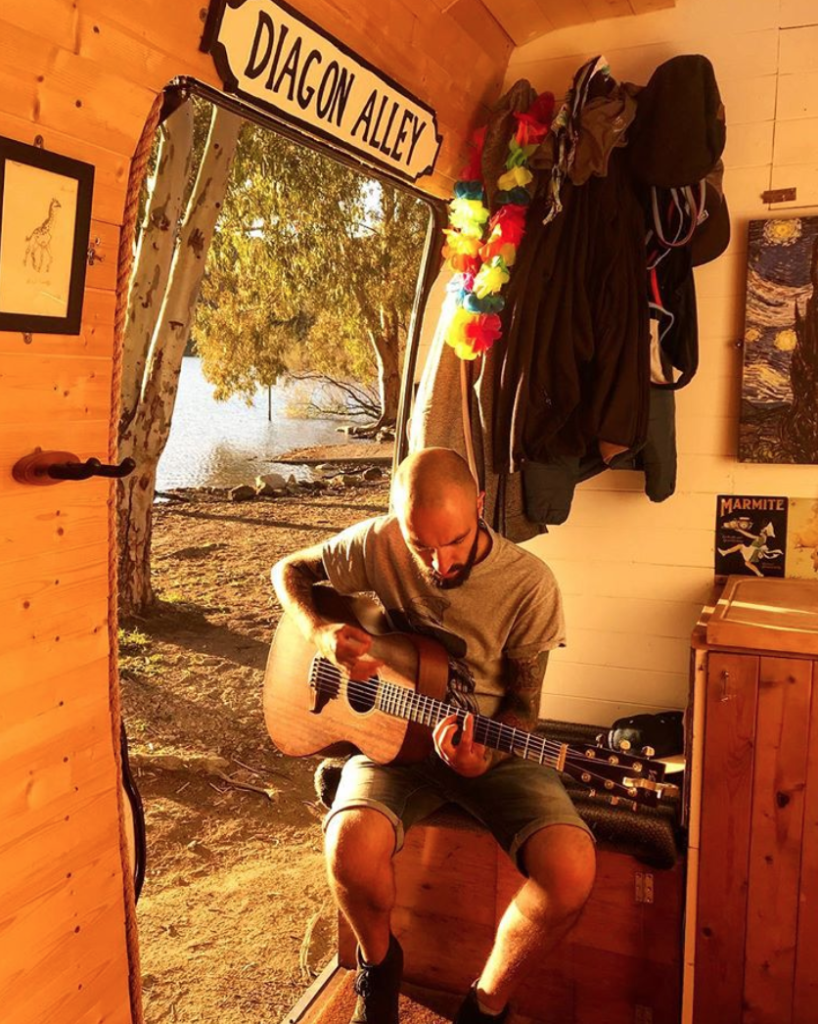
I guess the real answer to this question depends on what kind of a person you are. If you’re used to spending time on your own or even want to test yourself by being alone with your thoughts, then you’ll love the freedom and the quiet that boondocking provides.
As I’ve just mentioned, other people will arrive from time to time. Sometimes they’ll want to chat, but other times they might give you a curt nod and keep themselves to themselves.
Boondocking sites are usually large open spaces, so you can park up and have your own little area without encroaching on other people’s privacy pretty easily.
But How Do I Empty My Toilet Or Find Water If I’m Boondocking?
The apps that I have mentioned above, along with many other similar applications, show free or low-cost areas to empty your toilet and fill up with water. Once you start looking for them, you begin to realise that there are taps everywhere. I’ve filled up my water everywhere from a mountain hand-pump in France to a churchyard tap in Sardinia.
Places with water are marked on the app, usually by a tap/fawcett sign or a water drop. Likewise, drains for grey and black waste will be marked on there too. The local council/authorities provide such spots as a courtesy to campers, so make sure you keep them clean and look after them.
They’re usually free unless you come to England. Don’t get me started on England and camping… I’ll just get angry.
Get Equipped For Wild Camping
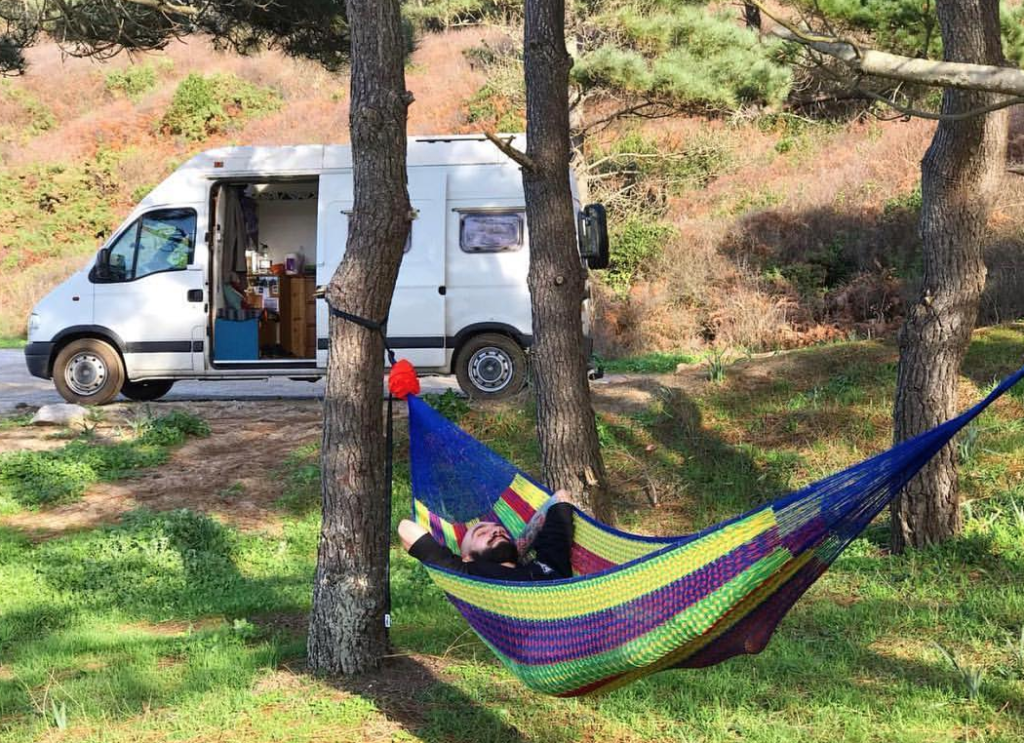
If you’re going to start camping in nature and stepping away from the comfort of the communal shower block and electricity hubs, then you need to be prepared.
There are so many different products out there that I could spend a whole day writing about every single one. Instead, I’m going to link you through to the item that I have installed in my camper below, and also to the corresponding official Van Clan ‘best of’ article.
Solar Power
Solar power is relatively cheap to buy and makes living off grid a breeze. I have two 100-watt solar panels on my van, and they keep my batteries charged up perfectly wherever I go.
They’re simple to install, but you’ll also need a Solar Charge Regulator and a small monitor/controller to be able to keep tabs on how much energy you’re pulling in/using.
Bear in mind that you need sunlight for these to work, so if you’re camping in a forest, you won’t be pulling in much power.
Batteries
Many campers go for AGM or lead-acid batteries because they are cheaper. I did this, and I was constantly relying on my solar panels and my Split Charge Relay to keep them charged up.
There’s nothing wrong with choosing these options. In fact, they’re perfect for campsite usage because they’re designed more for working with electrical hook-ups than long term off-grid usage.
If you’re serious about boondocking, however, then save up and get some lithium-iron-phosphate batteries. They are so much more reliable and, while they might be more expensive, they make living on the road so much more comfortable.
With my lead acid batteries, I couldn’t really charge anything after the sun went down. The lights would go off sometimes, and it was a bit miserable during winter. My new batteries from Battle Born Batteries are superb. I can charge all day long and they don’t go down at all!
Inverter
If you’re a digital nomad who plans to work on the road, then you should probably consider installing an inverter into your camper. It turns 12V electricity into 240V/120V depending on where you are in the world.
You’ll need an inverter if you want to install household-style plugs into your tiny home. They’re useful for charging up laptops and cameras, as well as hooking up games console and TVs for rainy days.
Buying the right inverter is important. You want one that will be able to cope with the voltage of your devices and one that has the correct peak power for bigger gadgets. What’s more, you need one that is a good quality that won’t destroy your expensive gear.
Water
We all need water to survive, even if you think that you could manage pretty well on beer and vodka alone.
Water storage is a biggy, and there is no right or wrong answer as to how much you should carry. Obviously, you won’t be able to carry 200-gallons if you’re travelling around in a VW California Camper, but you can be clever and stock up with multiple canisters or even install a water filtration system for filtering pond water!
If you want to install a shower in your van, then you’re going to need to store a lot of water. It also means that you’ll have to drain your tank more often too. You’ll drink water way more in hotter climates than you do in colder ones, and you also want to make sure that you don’t run out!
I use a simple water storage system in my van. I have two 25-lite canisters; one for clean, and one for dirty. I also store additional drinking water in two containers in the back of the van. I can usually do without a water source for filling up for about two-weeks.
Showering
In my opinion, installing a fixed shower in a build is a bad idea. They take up a lot of space, and you can just as easily bathe in hot springs or use a portable camper shower instead.
Portable options can either be used directly outside your van or out in the middle of nature, providing you use eco-friendly soaps and don’t mind bears seeing you naked.
We mostly wash ourselves using a big bowl that we place in our sink, filled with warm water from our kettle. If any water drops onto the floor, then it is used to give the floor a good clean. It’s simple, but it works!
When we’re out in nature, we use the Scrubba Wash Bag. It triples up as a backpack, a portable washing machine, and a portable shower. Just don’t try to wash your body with laundry powder…
Toilets
Many people spend a lot of time deliberating over whether to put a toilet in their build or not. For me, it’s a no-brainer. I’d much rather do my business in comfort than mess around with a trowel in the rain in the middle of the night.
Depending on your budget, you could either go for a cheaper chemical toilet or a fancy composting unit. Both options have their pros and cons, and your decision making process will inevitably boil down to how much space you have in your van.
Toilets can be hidden in cupboards that double up as storage, or they can be slotted into seats and drawers and hidden away until use. Emptying them is easy if you have information on travel apps or prior knowledge of your surroundings.
Boondocking and Safety
Is Boondocking Safe?
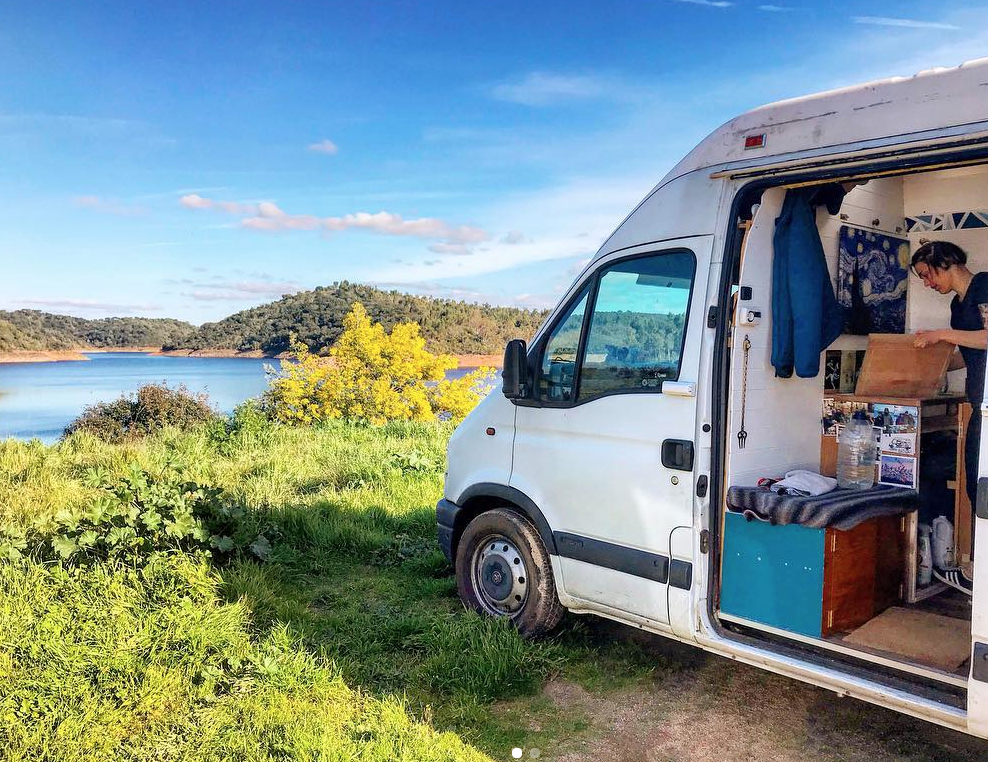
Is living in a house safe? Do you feel safe walking down the street or getting on an aeroplane?
There is a danger to doing absolutely everything in life, but that doesn’t mean that you shouldn’t do it.
I’ve been boondocking on a regular basis ever since I started living the van life. I haven’t had a single break-in, and I put this down to having extra locks and taking additional security measures when leaving my van.
I know friends who have experienced break-ins while parked up on the beach with other campers, and other friends have had things stolen from campsites. There’s a risk of this happening no matter where you go, but you can minimise it if you take the following precautions.
- Add extra locks to your doors
- Put any valuables in a safe
- Don’t leave expensive things lying around
- Research an area on your chosen travel app to see if other people have been broken into
- If there’s glass on the floor when you arrive, consider finding a new location
- Don’t leave your windows open or your keys in the ignition (I’ve done that last one a few times!)
- Use your common sense
As for being safe around other people, most of the people that you come across will be there for the same reason as you. Secluded spots are also sometimes used by kids who want to smoke or do drugs, but they’re there because they also don’t want anyone bothering them.
Don’t waste time worrying about horror stories of axe murderers that people make up around campfires. The worst thing that’s happened to me was when some drunk guy through KFC at my head and then fell over…
Most people in the world are nice. Always remember that.
Are There Any Dangers?
There are dangers in everything that we do, and you can’t always prepare for every eventuality. You can, however, stock up on emergency items such as first aid kits or tyre-weld spray for when you get a puncture.
Carrying recovery tracks can really help in instances where vans become stuck in sand or mud. And if you’re travelling with a friend, then a winch could come in handy if you need to tow someone out.
One of the main dangers is breaking down without anyone knowing where you are. This isn’t a problem if you’re near a main road and have signal to call a breakdown company. But if you’re deep in the heart of the backcountry and bears are drawing nearer, then you might have a problem.
Can People Reach Me If I Don’t Have any Signal?
If you’re planning on boondocking in incredibly remote areas, then you should consider taking a Bivy Stick along for the ride. It’s a small device that turns any mobile phone with Bluetooth into a satellite phone.
As long as you can see the sky, you’ll have a lifeline to the outside world. You can check the weather, call for help, or snap a pic of you and a racoon on your Van Life Instagram feed.
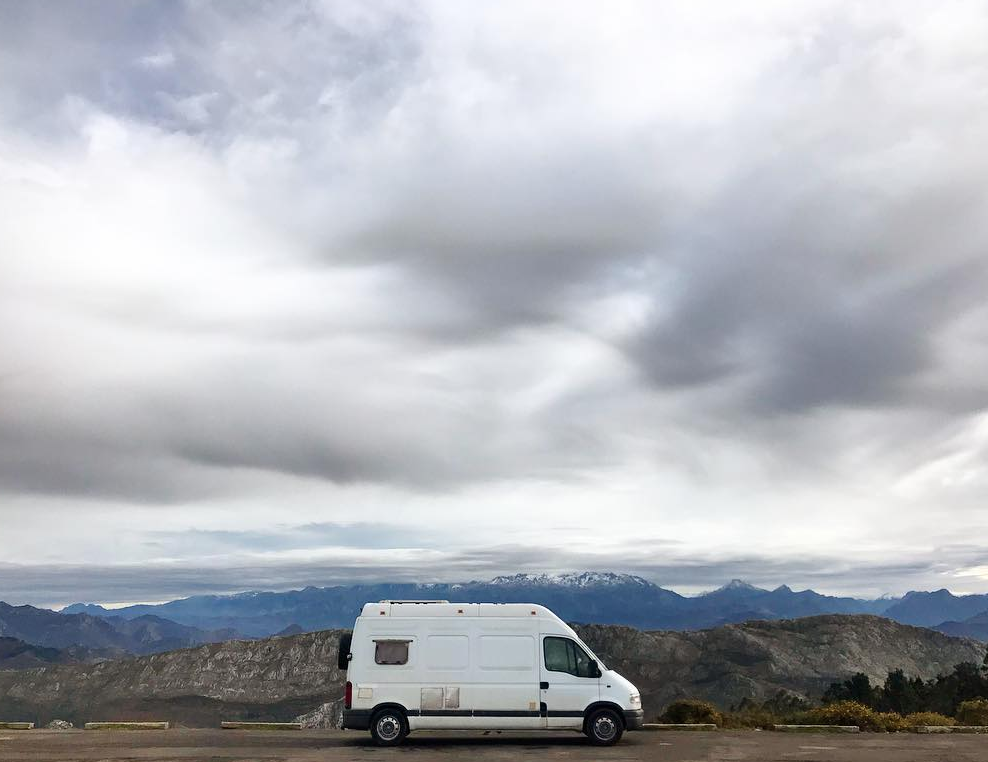
Final Thoughts…
Boondocking and wild camping are what van life is all about. Why look at a beach from a campsite when you can park by the sand and have your breakfast beside the ocean. The world has some incredible views to offer, and you shouldn’t miss them just because you want an electrical hook up to power your satellite TV system.
By kitting our your camper with the right gear, you can feel at home no matter where you are. Waking up and forgetting where you are is the best bit of travelling; you always get a surprise when you pull back the sliding door and look out at where you are.
I would strongly recommend everyone to try this method of travel. If it’s not for you, then go back to the campsite safe in the knowledge that you gave it your best shot.
You might find, however, that you pick up a taste for free camping and ditch the toilet blocks and bay parking forever.
And who knows, you might even make a few life-long friends along the way!
More Content From The Van Clan Team!
- What van life costs do I incur on the road?
- Which are the best campervan cookers?
- Standout Sport make the best adventure gear!
- Follow Van Clan on Facebook, Twitter, and Instagram!

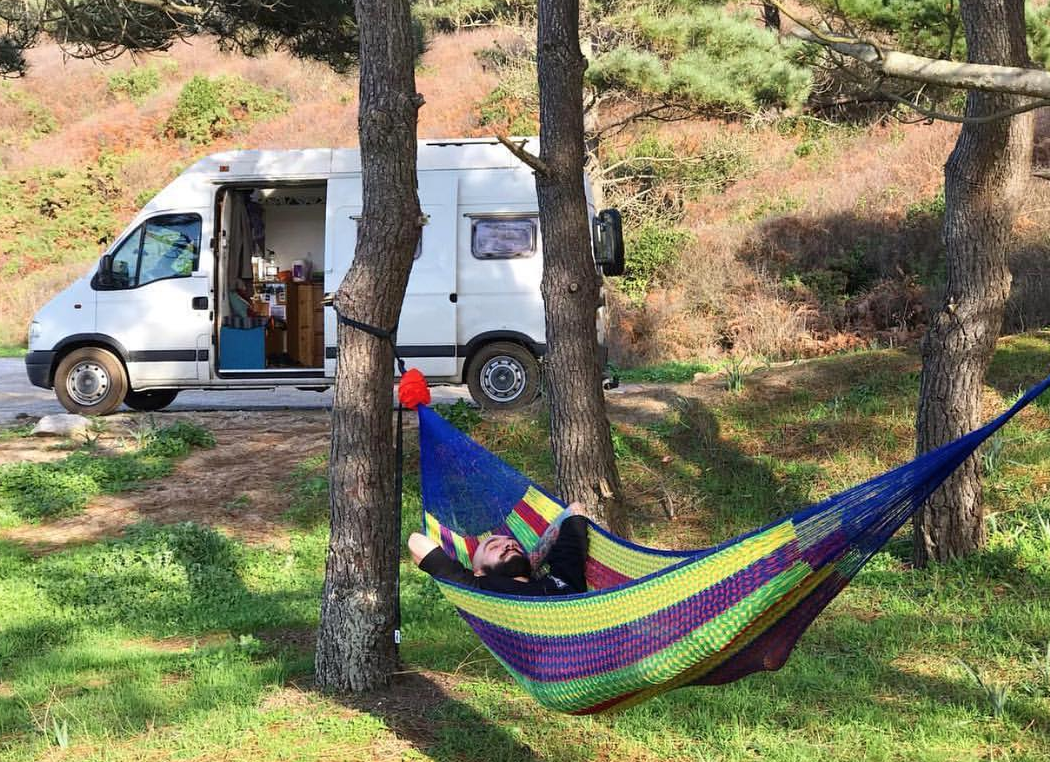
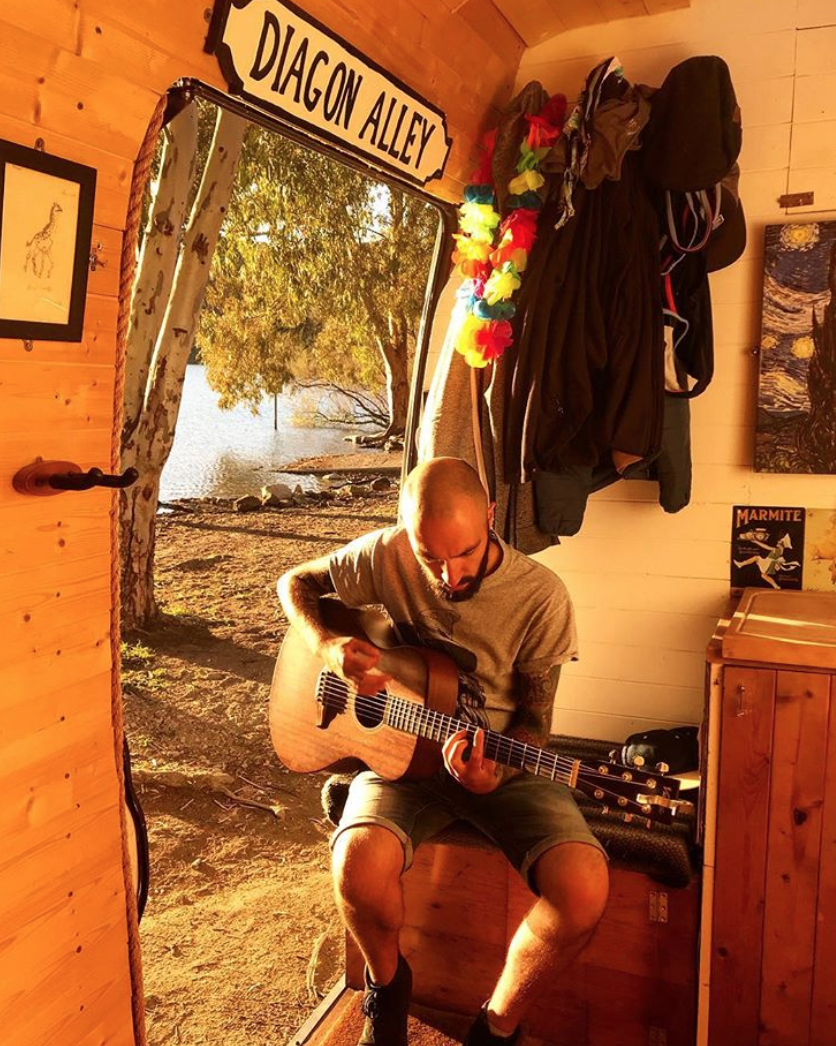
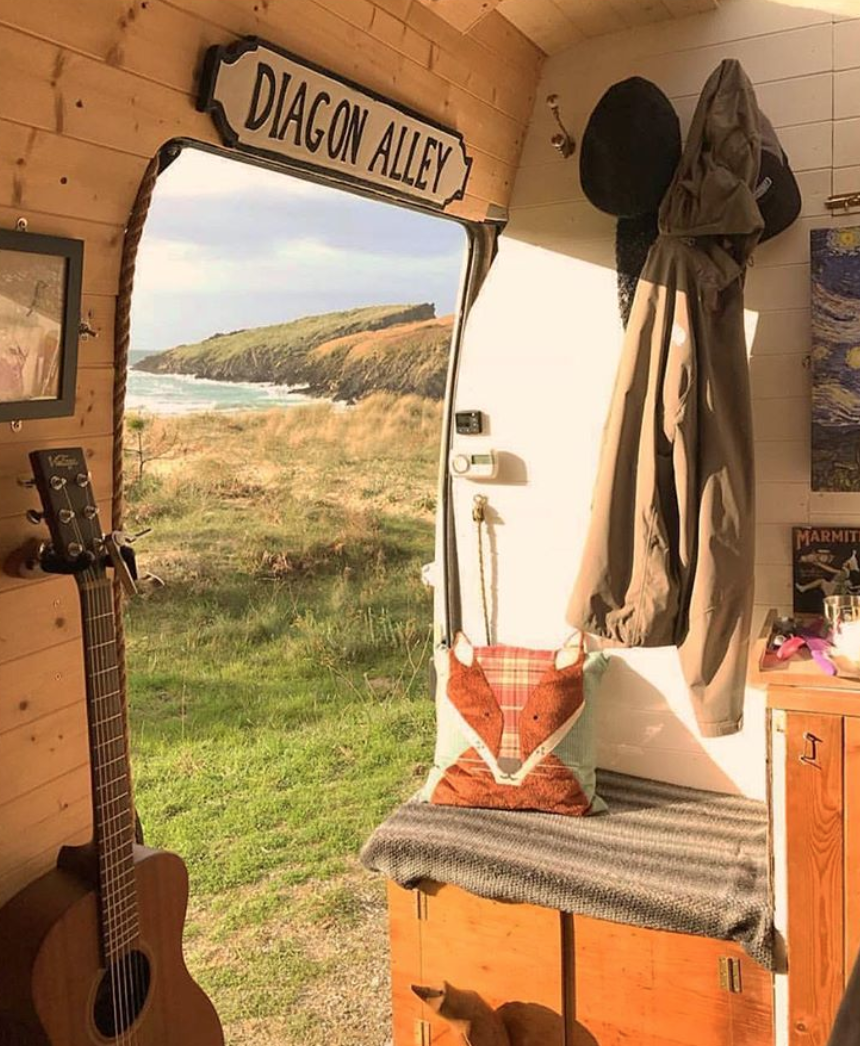
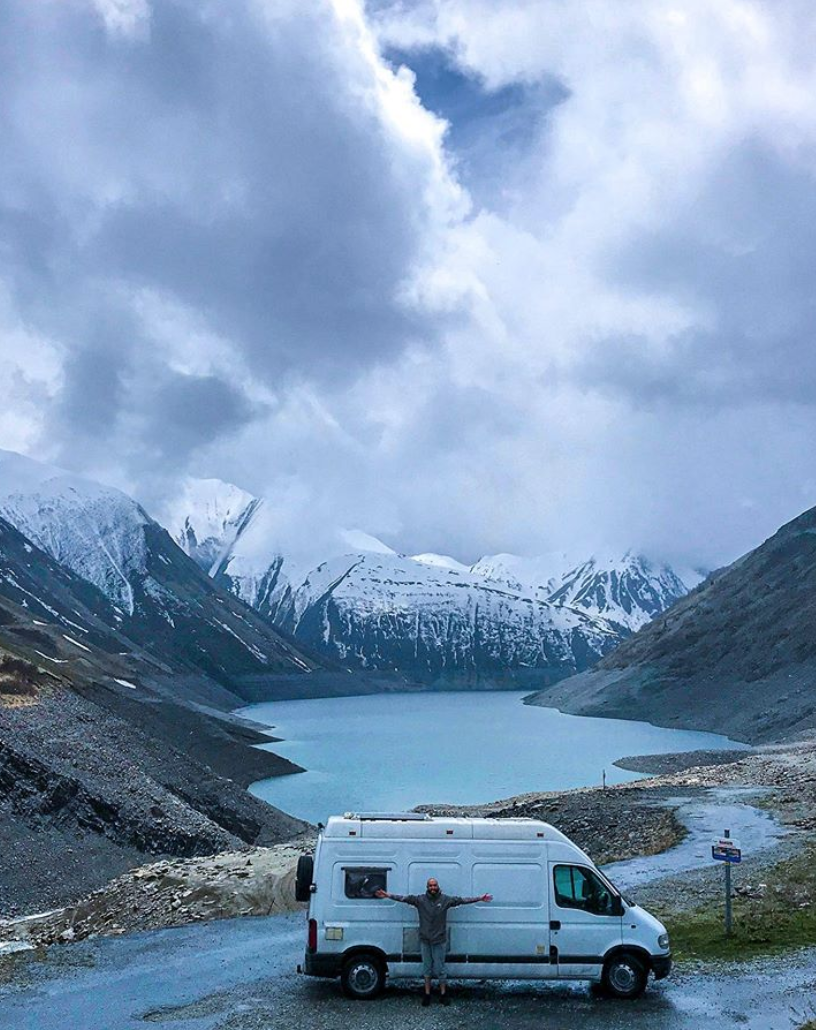
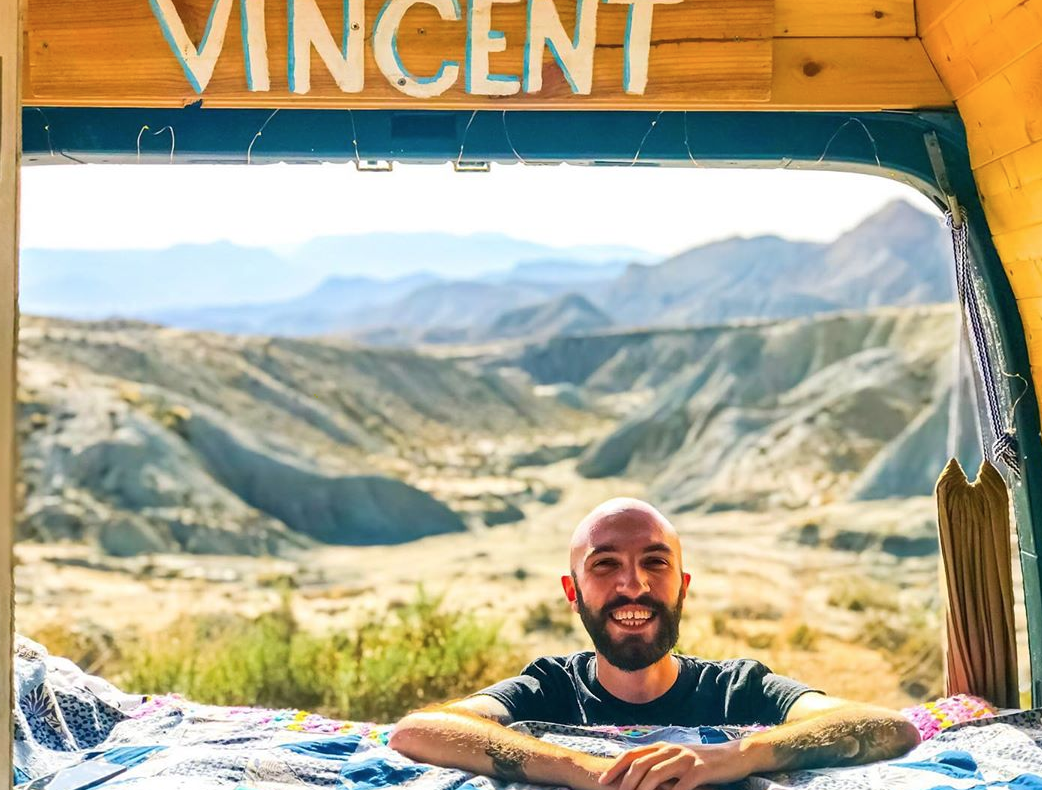
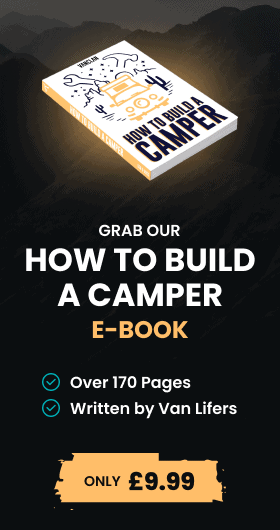

COMMENTS
Please note that all comments will be checked by our team before being approved.